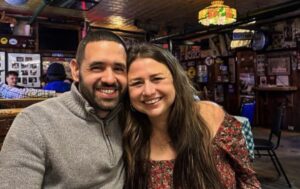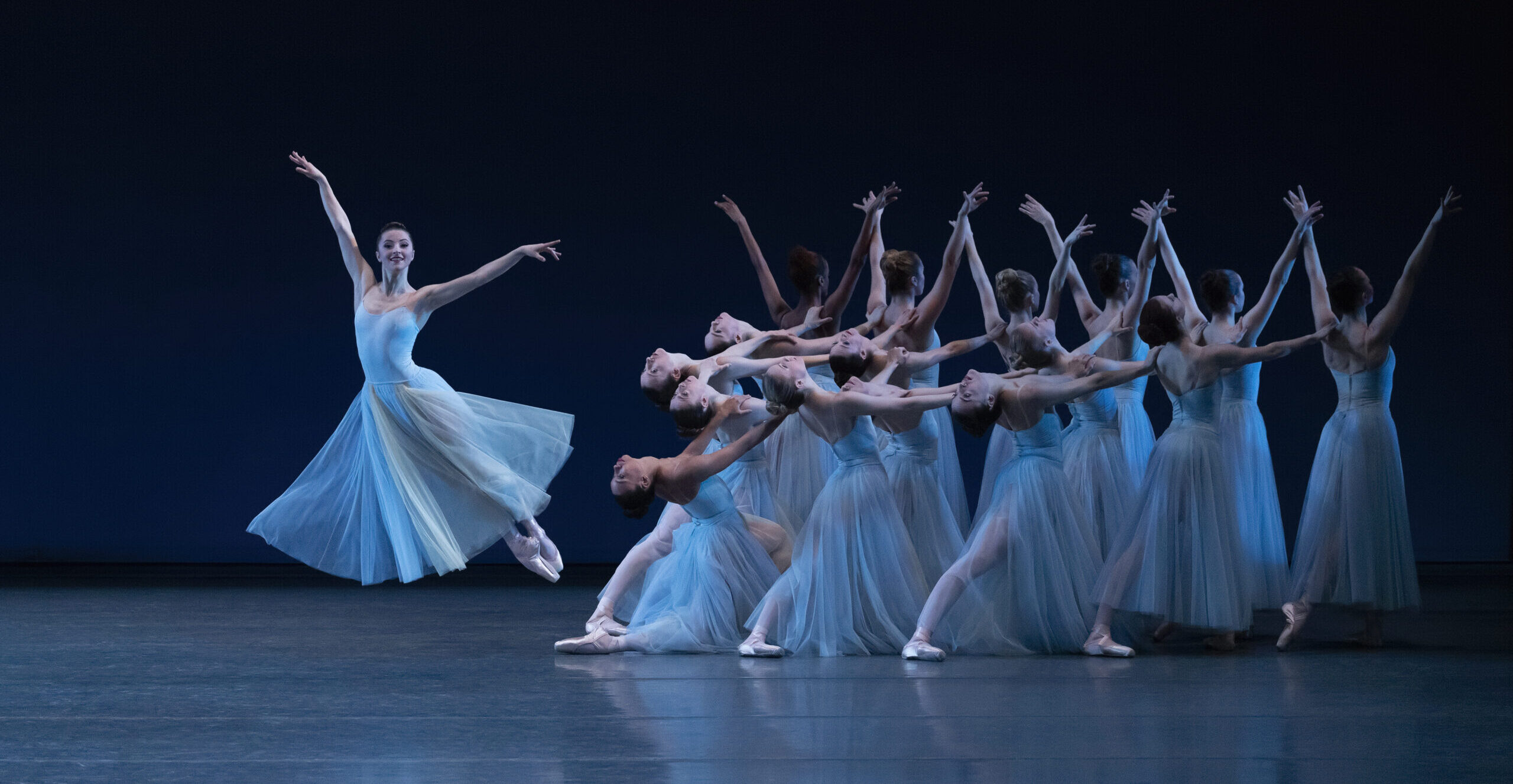There’s definitely something about Mechanicville.
I must admit, even as a resident of Saratoga Springs, I didn’t know a whole lot about it until I was assigned a story about it. Scratch that—I knew approximately nothing about Mechanicville. To me, it was a geographic location: situated in southern Saratoga County, east of the Northway and the suburban sprawl of Clifton Park, and one of a string of towns—including Schuylerville and Stillwater—along Route 4, heading north from Troy and hugging the banks of the Hudson River (and that was all thanks to Google Maps).
By the time I actually paid a proper visit to Mechanicville, I’d uncovered a few more morsels about the town—the first being that it’s actually not a town, but technically a city, if a small one. In fact, it’s one of just two cities, along with Saratoga, in the county, and boasts a population of approximately 5000, packed into less than one square mile. (It claims to be the smallest city, area-wise, in the entire state.) I’d also discovered that Mechanicville—while considerably less bustling now than a few generations ago, when manufacturing fueled the local economy—was once home to an important railroad hub, as well as several consequential factories, including the Westvaco Paper Mill, which at one time was one of the largest paper producers in the country.
Mechanicville’s contributions and attributes have always been outsized. If you take the time to learn more about the city, you’ll discover that it has a rich and important history; and it’s a place of deep roots, civic-mindedness and boundless pride among its residents, which include numerous long-established families, many of whom are Italian. That would explain the Italian Fraternal Hall, which stands across a parking lot from the bocce courts, and the names of the many mom-and-pop stores of yesteryear (Alonzo’s, Perrotta’s, DeVito’s), which would eventually give way to chains such as CVS, Cumberland Farms and Family Dollar. (Although other locally owned businesses, such as Costanzo’s Lounge & Restaurant, remain institutions there.)
Mechanicville also happens to be the provenance of a tightly knit, extraordinarily accomplished fraternity of gentlemen whose names have become synonymous with Saratoga, the Capital Region and beyond. Let’s call them “The Boys of Mechanicville.” A good place to begin the story of this band of brothers, who would go on from their Mechanicville roots to become A-list businessmen, entrepreneurs and philanthropists, is with Tony Ianniello, an attorney whose firm, Ianniello Anderson P.C., has offices across Saratoga County and beyond. (Ianniello is the Chair of saratoga living.)
Like so many former residents of Mechanicville, Ianniello’s is an immigrant’s story, his forebears having arrived from Italy in the early part of the 20th century, back when Mechanicville was a boomtown and a destination for folks with a dream, seeking a new life for themselves and their families, and willing to work long, hard hours to make their American Dream a reality. Ianniello’s father ran a barbershop and his mother worked as a seamstress. “None of our folks came over on the Mayflower, and none of us belonged to the country club,” the dapper Ianniello tells me one December afternoon, in his suite of offices in Clifton Park. How ironic, I tell him, since he could probably own his own country club these days. He seems almost embarrassed by the suggestion. “We’re not unique,” he insists. “There have been many, many very successful people who came from Mechanicville.”
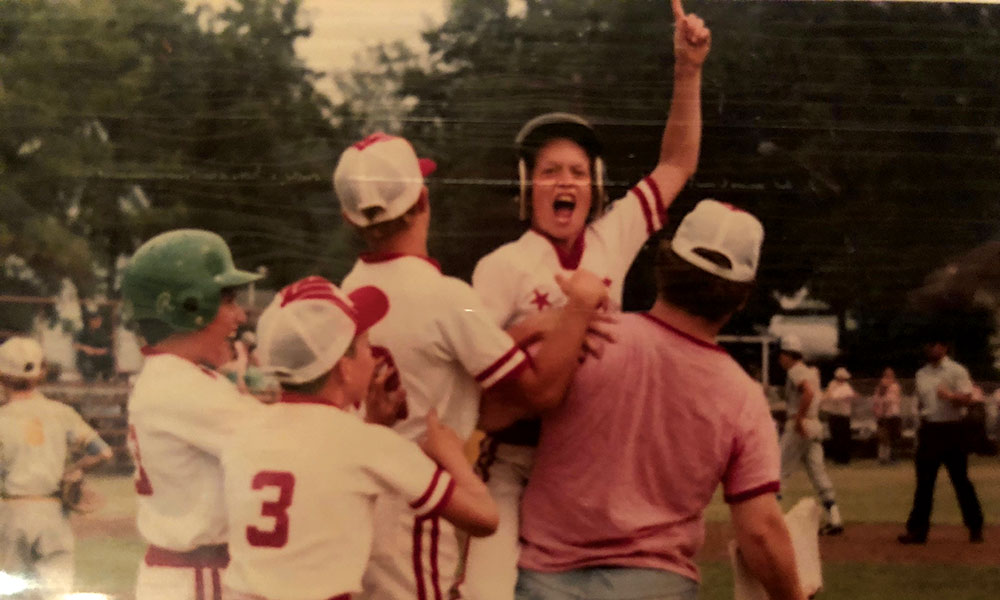
In one sense, Ianniello is dead on; though incredibly successful in his own right, he’s not the only Mechanicville native of note. Enter his quartet of locally famous friends, each of whom grew up in the small city and has put together an enviable résumé. These include Chad Brown, the award-winning and record-breaking Thoroughbred horse trainer; C.J. DeCrescente, President of Mechanicville-based DeCrescente Distributing; Dan Pickett, Chairman, CEO and Cofounder of local technology giant nfrastructure; and Dave DeVoe, former CFO of the global media colossus News Corp. Aside from their professional achievements, the friends, all of whom have maintained close ties to Saratoga and the Capital Region, are extremely active in any number of local institutions and philanthropies. It’s at fundraisers and the like, in fact, that Ianniello says he most often gets to see his friends from the old neighborhood. Then, of course, there’s also summers at Saratoga Race Course (see below).
Over a series of conversations in the weeks leading up to Christmas 2018, these captains of industry would weave for me a remarkable, nostalgic tale of accomplished individuals and families who share a history grounded in idyllic, small-town life, formed in a place and time that hardly seems to exist anymore except in one of Sherwood Anderson’s stories or the reruns of some ’50s TV show. Travel to Mechanicville, and you’ll find so many of the hallmarks of Anywhere USA. Imposing church steeple? Check. Bucolic streets lined with white picket fences? Check. A corner bar serving $2 drafts, where every television set is tuned to the New York Giants? Check. A diner where a fresh pot of coffee is always on, everybody seems to know everybody and a chatty waitress dishes more than just the daily lunch special? Check, please—but not until I’ve heard one more irresistible piece of gossip. (In Mechanicville, that place is Bubbles Restaurant, which also serves the best hard ice cream around.)
So what is it, exactly, that makes Mechanicville so incredibly special?
Chad Brown—who, at 40, is what you might call the “kid” of the group—describes his hometown this way: “It was the type of place where everyone looked after each other—football games on Friday night, great teachers who taught us values, an old-school Italian community that always stuck together, like one big family. I was lucky to grow up there.” Brown, a superstar in the world of horse racing, who now lives in Saratoga, first discovered his love for the sport during childhood trips to Saratoga Raceway, the local harness track. In high school, he got a job there, working under trainer Paul Kelley. Even after heading off to Cornell University, Brown would return to Saratoga during the summers to work at Saratoga Race Course under trainer Claude R. “Shug” McGaughey III. Fast-forward to today, and Brown has swapped harness for Thoroughbred racing, and now boasts upwards of 1200 career wins, including his first Triple Crown race in the 2017 Preakness Stakes with Cloud Computing. He won the National Thoroughbred Racing Association’s (NTRA’s) Eclipse Award for Outstanding Trainer in 2016, 2017 and 2018—years in which he was ranked No. 1 in North America in terms of total earnings. (He finished out 2018 with a reported $27.3 million, making for career earnings totaling $148.3 million.)
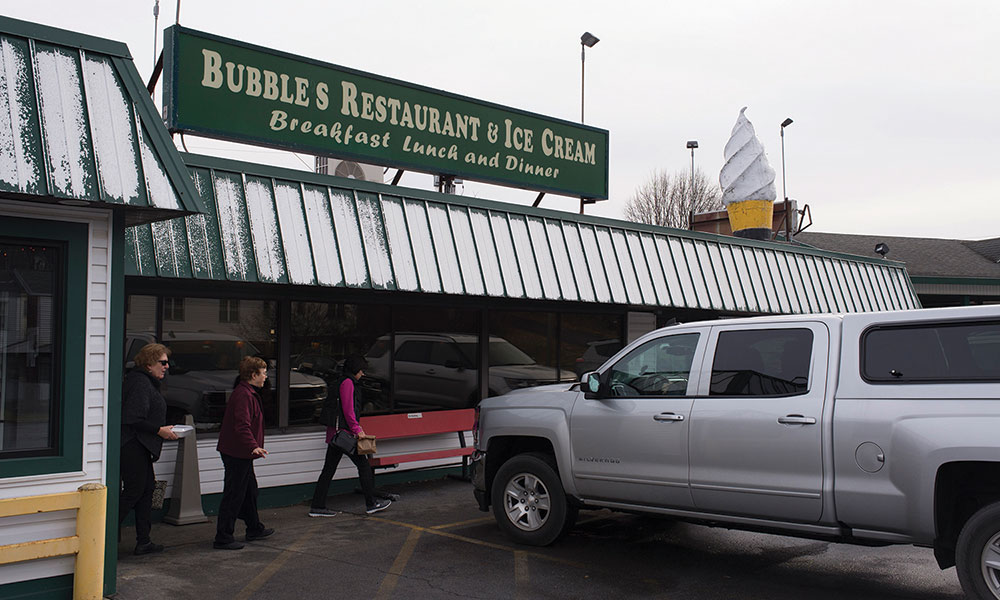
Brown says it’s not surprising that so many successful people have come out of Mechanicville, crediting not just his own mom and dad and his mentors all those years ago, but also the rock-solid community as a whole—which includes the teachers and coaches he had going back to first grade—with providing the foundation that would lead to his phenomenal run. “They taught you that you work hard, you don’t cut corners, you keep your word—if you say you’re going to do something, then you do it,” he tells me. “Looking at America today, that’s lacking. It traces back to what our core values are. Nobody’s perfect—but you learn as you go in life. Those were the common values of our community, from household to household.”
Dan Pickett concurs: “Mechanicville is a town on the Hudson River where you had a lot of immigrant families, and I think there’s always been a strong work ethic because of that. I think people valued family, working hard, loyalty. It’s a small city, so people were close. The school, back when we grew up, was a good school, with good teachers and mentors, and I think that helped get things rolling for us guys.”
Pickett has been on a roll from the beginning, actually. After graduating from Rensselaer Polytechnic Institute (RPI) in Troy, he went on to become a major player in the tech and private equity worlds, and one of the Capital Region’s foremost philanthropists. The Pickett Family Foundation, founded in 2001, supports numerous charities, including the American Cancer Society, St. Jude’s Children’s Research Hospital, St. Peter’s Health Partners and Saratoga Hospital. Pickett has served on the boards of a number of institutions and nonprofits, including Albany Medical Center and the local chapter of Gilda’s Club, named for the late Saturday Night Live star Gilda Radner. He’s also on the board of trustees for his alma mater, RPI.
Pickett says that he’s not only known and stayed in touch with this group of four friends and their families his entire life, but he’s also been able to seek them out for professional advice and guidance throughout the years. “When I’ve needed help with something, all those guys have been there and have helped me in some way, shape or form over the years,” says Pickett. For example, friend Dave DeVoe—whom, he points out, rose to the upper ranks of the media world as one of Rupert Murdoch’s right-hand men—offered invaluable counsel when Pickett was putting together a merger between nfrastructure and tech company Zones, a deal that created a $1.5 billion global company with operations from New York to New Delhi. (Pickett’s company, which he founded with his father and brother in the basement of the family’s liquor store in Mechanicville, is now a Zones subsidiary.) “Here he was, the CFO of one of the biggest media companies in the world, but he’s also generous with other people, a mentor. He didn’t run away from his roots—he feels a responsibility to help people achieve the same success he did.” To that same point, C.J. DeCrescente’s family, in 1990, financed nfrastructure’s first office building, according to Pickett. Likewise, he says, Tony Ianniello has offered sage legal advice. “When you look back, there are all these little moments in time, and each one was just sort of a stone on a scale that ended up tipping in a certain direction, where you ended up creating something that’s so big and so special that you can’t even believe it happened,” says Pickett. “It’s all the result of a lot of hard work over a sustained period of time, with a lot of hard-working people.” And of his friends? “I’m proud of those guys. I’m proud of what they’ve accomplished, and probably more so of how hard they worked to get there.”
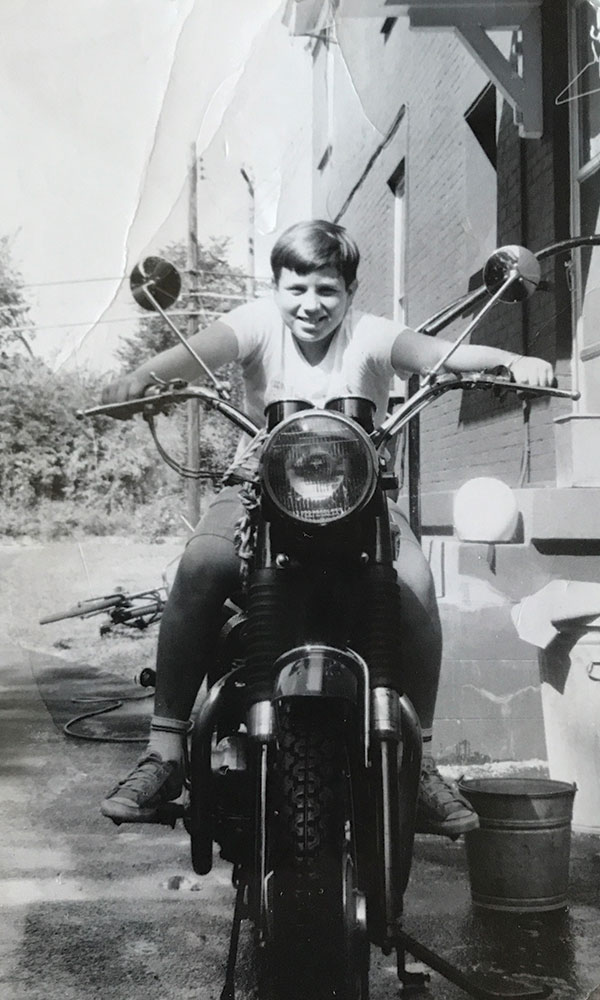
Getting there was certainly not a walk in the park. C.J. DeCrescente points out that he and his four friends all came from relatively humble beginnings: “My family lived in a two-bedroom apartment, where we shared one bathroom. We lived there until my father bought his first house in the ’80s. We were working pretty hard for what we had back then—but we always knew we were being supported locally. We started to become an important little part of Mechanicville as far as employment.” (DeCrescente Distributing’s 70th anniversary was the subject of a story in the 2018 Holiday issue of saratoga living.) Times weren’t always so prosperous, though. There were days when DeCrescente’s mother would have him hold checks, because there weren’t enough funds to cover them. “You don’t forget that kind of stuff,” he says. “I try to instill the same in my kids—you want them to have an understanding of how things used to be.” Oh, how things have changed for the company, and for DeCrescente himself, who’s on the boards of the Saratoga Performing Arts Center (SPAC), the Alzheimer’s Association’s regional chapter and the David Ortiz Children’s Fund, among others. He’s also Chairman of the New York State Police Signal 30 Benefit Fund, which helps support the families of officers killed or injured in the line of duty. “If you’d asked me 40 years ago if we’d ever be able to do some of the things we’ve been able to do philanthropically, I would’ve said, ‘Jeez, I don’t know—we can barely make payroll,’ you know? It’s a trip.”
Even when it comes to the many charities he supports, DeCrescente is mindful that hard work is the key to success. He urges his senior leadership to give not just money but time to worthy causes. “Checks are great, but there’s no better way of giving back than by actually getting involved in the organization,” he says. When I spoke to DeCrescente, he was headed off to meet up with family members and employees for their annual Christmastime tour of area facilities for the sick and elderly, including Saratoga Bridges in Wilton. They dress up in costumes (C.J. was The Grinch), sing carols and spend quality time visiting with those who could use a little holiday cheer, culminating in a big gathering at C.J.’s house in Clifton Park.
But it can’t just be hard work, right? I ask Tony Ianniello if, maybe, there’s something in Mechanicville’s water. He pauses for a minute and says: “I’d say strong families—we all came from strong family backgrounds.” He then reels off the biographies of his friends like a man talking about his own brothers. “C.J. is the third-generation of a distribution company, and he’s taken it very far, as his father did from his grandfather. Dan Pickett’s parents were both from Mechanicville—his father was a star athlete who played all sports. A lot of us played sports.” (Basketball and baseball were Ianniello’s games, from Little League through high school.) He continues: “Dan went to RPI and is the youngest member of the Board of Directors in the history of RPI. I went to Union College, Dave went to SUNY Plattsburgh, Chad went to Cornell—so we were all educated Upstate.” Because of those ties, Ianniello never strayed too far from his friends. After earning his BA from Union, he went on to get an MS/MBA from Northeastern University before returning to the area to complete his JD from Albany Law School. He’s been in private practice since 1970, with a concentration in real estate law. (While he’s built a reputation as one of the area’s most prominent attorneys, Ianniello reveals that he didn’t always want to go into law—he originally wanted to be an investment banker.) Today, Ianniello Anderson employs 16 lawyers and a support staff of 50, has 5 offices in New York and Florida, and is licensed in several states.
Aside from his day job, Ianniello is, like his successful friends, heavily involved in the arts and local philanthropies, serving on the boards of SPAC, Universal Preservation Hall and the Saratoga Automobile Museum (of which he is a former Chairman), and he’s closely involved with organizations such as Opera Saratoga, the National Museum of Dance and Saratoga Arts. “My greatest passion is supporting the arts for young people,” says Ianniello. “We have a lot of plans to make Saratoga really a national destination for the arts.” This May, Ianniello will be honored for his contributions to the fight against cancer with the Beacon of Hope Award at the American Cancer Society’s annual Gala of Hope at the Hall of Springs.
As is fitting for someone so closely associated with the Auto Museum, Ianniello has loved cars as far back as he can remember, and as an adult has gone on to become somewhat of a collector—though he’s quick to correct me that a true collector is one who deals in vintage models, while most of his are on the newer side. When I ask him to share with me all the wheels he owns, he obliges (in case you’re interested, he’s got two Ferraris, three Porsches, a McLaren and a Bentley). Today, Ianniello makes his home overlooking Lake Lonely, just east of Downtown Saratoga and 14 miles due north, give or take, of Mechanicville.
It was never really a question that, even as he achieved such an impressive education and started building his career, Ianniello would stay close to home. He wanted to be near his parents as they advanced in years (they’re now deceased, as are both his brothers), as well as his five nephews, with whom he remains close. Echoing his friend C.J. DeCrescente, Ianniello points out that it wasn’t always easy creating a business from the ground up in this part of the world. “The business climate when I started was, I’d say, in the doldrums. It wasn’t a very robust environment, and over a long period of time, we’ve arrived at where we are now, which is like an oasis in the middle of the desert. Most of Upstate New York is challenging, but the Capital Region has, I think, a robust business environment.” Much of that he credits to Glens Falls native Joe Bruno, the longtime Republican leader of the New York State Senate, as well as local investment by companies such as GLOBALFOUNDRIES and the establishment of the Colleges of Nanoscale Science and Engineering on the campus of SUNY Polytechnic Institute in Albany.
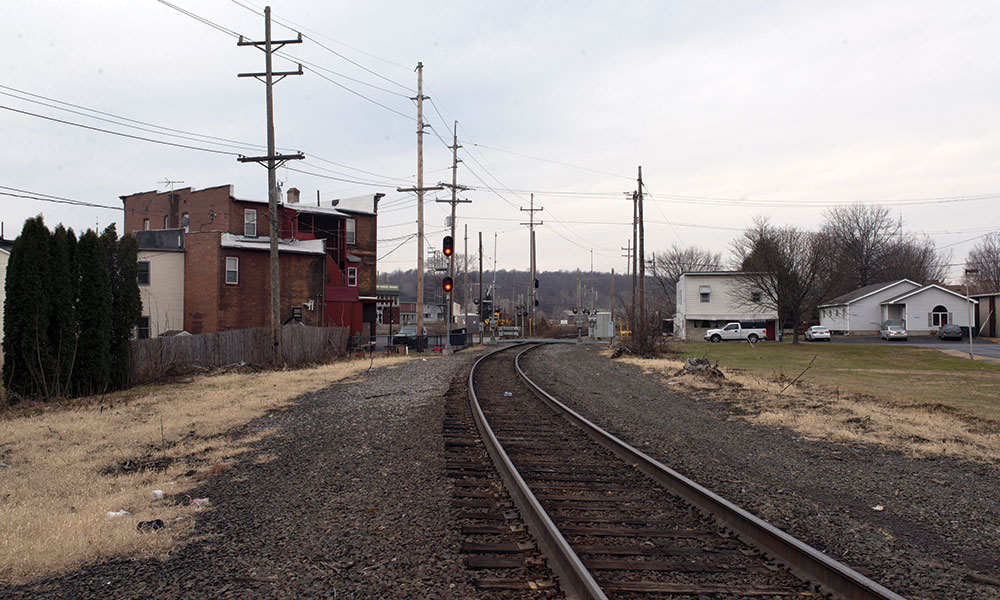
So what of Mechanicville and its future? Its proximity to the state capital, access to big-time employers and enviable location on the Hudson continue to benefit the city greatly. Neighborhood institutions such as the Arts Center on the Hudson, located in the stunningly renovated Gothic building that used to house St. Luke’s Church, have breathed new life into the community. Well-established Mechanicville traditions, some of them more than a century old, are still alive, such as the annual Feast of the Assumption Parade every August. And yet, there continues to be so much obvious opportunity here. You see it as you walk these streets, in the old buildings that could use a little TLC and vacant storefronts—a familiar site, sadly, in so many small cities that have fallen victim to the Walmarts and Amazons of the world.
I don’t know about you, but I’m hoping for a Mechanicville renaissance. Might the city become the next Troy or Hudson—ripe for a new wave of émigrés, the next generation of visionaries in the form of restaurateurs, shopkeepers, artisans and artists? Like all the other boys from Mechanicville, Pickett still roots for his hometown: “Given the opportunity, and with the right local leadership and the right master plan for the town, there’s definitely potential there. Like anything, it’ll take a few very committed people to engage other committed people to increasingly do things to make the city special, so that when you look back five or ten years from now you’ll be amazed at what they got done.”
So, yes, I think a renaissance is in order, and if history is any guide, these boys of Mechanicville will be rooting for their hometown. No question about it.
Training Day: The Boys of Mechanicville Take The Racetrack By Storm
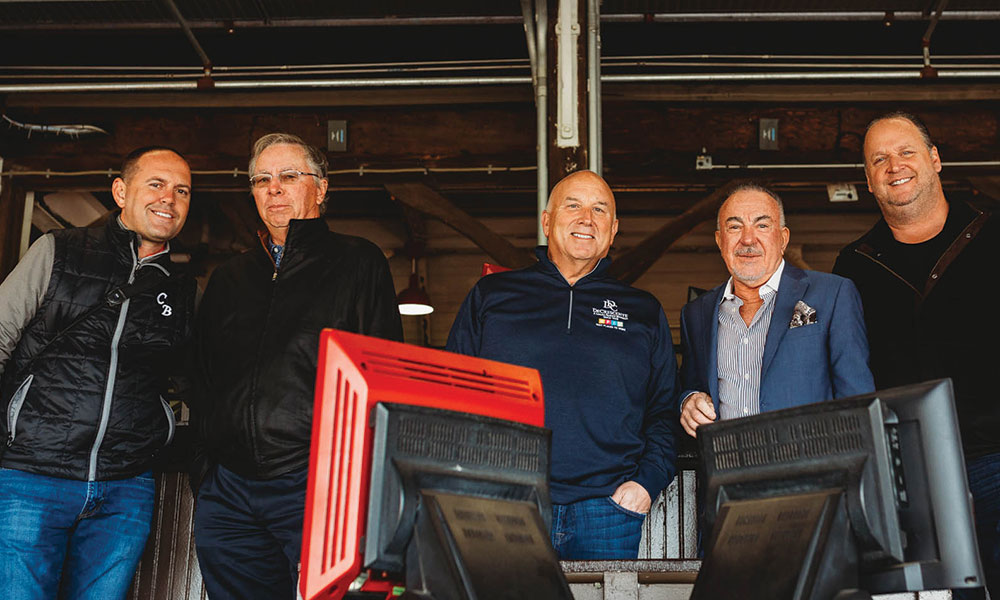
On August 31, 2018, the day before Chad Brown became the winningest horse trainer in Saratoga Race Course history, he was enjoying a different kind of day at the races. The guest list included powerhouse friends and Mechanicville natives Tony Ianniello, Partner at Ianniello Anderson, P.C. (and Chair of saratoga living); C.J. DeCrescente, President of DeCrescente Distributing Company; Dan Pickett, CEO and Cofounder of tech firm nfrastructure; and Dave DeVoe, the former CFO of News Corp, all of whom met Brown at 7am sharp for a tour of his Thoroughbred stables in a part of the racetrack few fans ever get to see. And I was there, a fly on the wall, along with saratoga living Senior Photographer Dori Fitzpatrick, to capture this rare meeting of minds.
The group met at Barn 52, adjacent to the Oklahoma Training Track, across Union Avenue from the main track. The barn is the center of Brown’s operations and where the private tour began. Chad led us on a muddy walk around the grounds, and we caught groomers prepping and washing his horses, including the four who would run under his name later that day. We also met a two-year-old filly named Feedback, who’d won her first race by eight lengths at Saratoga earlier in the month.
Next, we were shuttled over to the main track by golf cart, joining the other trainers and owners watching their horses jog, gallop and breeze by. With the haze of the morning lifting, we stood at the rail, admiring the view of the Grandstand as Brown coordinated which horses, in pairs, he wanted to see work, to assess his options for future races.
After a full morning of touring, which included a peek inside Brown’s offices (its walls lined with photos from all of his winning races), we ended up at the Grandstand, where Brown graciously offered his box seats to us for the day. The very next day, from those same seats, Brown would watch his two-year-old colt Spirit Animal cross the finish line first in the sixth race, setting the new single-season record for wins with 41 at Saratoga (he’d finish the card with two more wins). It was quite a day. —Joe Mastrianni












